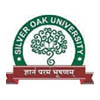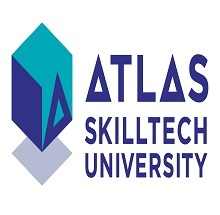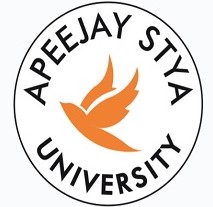
Top Trending Universities










Duration :
5 Years
Average Salary :
-
Average Fees :
-
Job Demand:
The Bachelor of Science and Bachelor of Legislative Law (BSc LLB) is a five-year integrated programme that combines the study of law with BSc disciplines such as physics, chemistry and biotechnology. Students with a science background often find it simple to pursue a BSc LLB and a career in law.
| Type of Degree | Bachelors |
| Full Form of course | Bachelor of Science and Bachelor of Laws |
| Duration of degree | 5 Years. |
| Age criteria | No Age Restriction |
| Minimum Percentage required | 50% in 10+2 |
| Average Fees | 2 lakh |
| Average Salary | 3.5 lakh |
| Job Roles | Research assistant, Drug safety Associate, Forensic science specialist, Quality analyst, Lecturer,Attorney General, District & Sessions Judge, Munsifs, Advocate, Public Prosecutor |
The Bachelor of Science and Bachelor of Legislative Law (BSc LLB) is a combined law programme that candidates can begin straight after finishing their 12th grade. The BSc LLB programme is of five years.
Students of BSc LLB should be aware of the course admission procedure at all times to ensure that they are accepted into the college of their choice. Aspirants of BSc LLB can apply for the course online by visiting the National Law Entrance Examinations website and filling out the application. If there is an admission centre in the area where they live, they can also complete it in person.
Across all colleges, the course selection process for BSc LLB is largely the same. The majority of colleges admit students based on their 10+2 grades as well as their entrance exam scores.
For the Bsc LLB course, many entrance tests are held across the country. The fundamental goal of these exams is to examine the aspirant's grasp of basic subjects and subsequently to offer them admission to institutions depending on their scores. Students must complete their 10+2 from a recognised board to be eligible to take the entrance exam for BSc LLB. The following are some of the most popular university exams:
In India, a number of law colleges, including certain national law universities, offer a 5-year integrated BSc LLB programme. The top law schools that provide a BSc LLB are listed below.
| BSc LLB College | Location |
| Parul University | Vadodara, Gujarat |
| Kalinga Institute of Industrial Technology | Bhubaneswar, Orissa |
| Lovely Professional University | Jalandhar, Punjab |
| Chandigarh University | Chandigarh |
| M.S Ramaiah College of Law | Bangalore, Karnataka |
| Dr. B.R Ambedkar College of Law | Visakhapatnam, Andhra Pradesh |
| Nirma University | Ahmedabad |
| KLE Society?s Law College | Bangalore |
| SDM Law College Kodialbail | Mangalore, Karnataka |
| KIIT School of Law | Bhuvaneshwar |
| Mahatma Jyoti Rao Phoole University | Jaipur |
The cost of a BSc LLB degree is determined by the college to which students choose to apply. The fee that the college charges is influenced by a number of variables. Location, faculty, and course demand are just a few of these considerations. The system costs about INR 2 LPA on average. The average fee structure of various top B.Sc LLB schools is listed below:
| B.Sc LLB College | Location | Fees in INR |
| Parul University | Vadodara, Gujarat | 1,00,000 |
| Kalinga Institute of Industrial Technology(KIIT) | Bhubaneswar, Orissa | 419,000 |
| Lovely Professional University | Jalandhar, Punjab | 1,37,000 |
| Chandigarh University | Chandigarh, Chandigarh | 120,000 |
| Dr. B.R Ambedkar College of Law | Visakhapatnam, Andhra Pradesh | 1,92,000 |
| Nirma University | Ahmedabad | 2,34,000 |
| KLE Society?s Law College | Bangalore | 90,000 |
| SDM Law College Kodialbail | Mangalore, Karnataka | 29,000 |
| KIIT School of Law | Bhuvaneshwar | 340,000 |
The B.Sc. LLB is a five-year undergraduate programme that educates students to legal topics. This course is designed to provide students with expert knowledge as well as a unique viewpoint on the subject. The B.Sc. A portion of the programme is designed to provide graduates with the necessary practical skills and interdisciplinary learning opportunities. BSc LLB is designed primarily for students with a strong background in mathematics and science. There are 10 semesters in all, and students can choose electives based on their chosen specialisation.
| Sem subjects I | Sem subjects II |
| Legal Method | History |
| Law of Contract-I | Law of Contract-II |
| English and Legal Language | Techniques of Communication, Client Interviewing & Counselling |
| Electronic Devices, Circuits and IC Technology | Digital Electronics: Microprocessors and Interfaces |
| Concepts of Chemistry | Techniques of Chemistry |
| Introductory Biotechnology and Cell Biology | Tools and Techniques of Biotechnology |
| Biotechnology Lab. | Electronics Lab. |
| Electronics Lab. | Chemistry Lab. |
| Chemistry Lab. | Biotechnology Lab |
| Sem subjects III | Sem subjects IV |
| Business Law | Law of Torts and Consumer Protection |
| Family law-I | Family Law-II |
| Constitutional Law-I | Constitutional Law-II |
| Law of Crimes-I | Law of Crimes-II |
| Advocacy Skills | Administrative Law |
| Telecom Engineering Fundamentals, Data and Wireless Communication | Programming Fundamentals & Data Base Management System |
| Polymer Chemistry | Physical Pharmacy |
| Genetics, Immunology and Molecular Biotechnology | Microbial Biotechnology and Fermentation Technology |
| Chemistry Lab. | Electronics Lab. |
| Electronics Lab. | Chemistry Lab. |
| Biotechnology Lab. | Biotechnology Lab. |
| Sem subjects V | Sem subjects VI |
| Code of Civil Procedure-I | Code of Civil Procedure-II |
| Code of Criminal Procedure-I | Code of Criminal Procedure ?II |
| Law of Evidence | Public International Law |
| Corporate Law | Investment and Competition Law |
| Jurisprudence-I | Property Law |
| Human Right Law | Jurisprudence-II |
| Synthetic Organic Chemistry | Information Theory, Coding and Network Programming |
| Plant and Animal Biotechnology | Pharmaceutical Chemistry |
| Sem subjects VII | Sem subjects VIII |
| Land Laws | Alternative Dispute Resolution |
| Laws and Technology | International Trade Law |
| Intellectual Property Right | Law, Poverty and Development |
| Labour Law-I | Women & Law |
| Genetic Engineering and Genomics | Air & Space Law |
| Biotechnology Lab. | Election Law |
| --- | International Commercial Law |
| --- | Internet, E-Commerce, Multimedia Tools & Information System Security |
| --- | Computer Lab |
| Sem subjects IX | Sem subjects X |
| Legal Ethics and Court Craft | Dissertation |
| Drafting, Pleading and Conveyancing | Internship (Lawyers/Law firms) |
| Legal Writing and Research Internal | --- |
| Country | Course Duration | Fees Structure in INR |
|---|---|---|
| MBBS Fees in Russia | 6 Years | 15 Lacs – 60 Lacs |
| MBBS Fees in Iran | 6 Years | 18 Lacs to 40 Lacs |
| MBBS Fees in Georgia | 6 Years | 22 Lacs – 35 Lacs |
| MBBS Fees in Mauritius | 5 Years | 40 lacs – 48 Lacs |
| MBBS Fees in Kazakhstan | 5 Years | 18.5 lacs – 25 Lacs |
| MBBS Fees in Poland | 6 Years | 60 lacs to 70 Lacs |
| MBBS Fees in Uzbekistan | 6 years | 22 Lacs to 30 Lacs |
| MBBS Fees in Armenia | 6 years | 25 Lacs to 30 Lacs |
| MBBS Fees in Belarus | 5.8 years | 20 Lacs to 25 Lacs |
Sessions and Districts After receiving a BSc LLB, you can work as a judge, notary, law reporter, science reporter, legal advisor, or attorney.
Here are some of the most common career jobs available to successful graduates of the subject, along with job descriptions and compensation.
| Job Profile | Job Description |
| Lawyer | In this career, you'll be advising and representing clients in both civil and criminal disputes. Lawyers present their clients' cases in court and participate in all actions and hearings. |
| Solicitor | A person with this job profile usually focuses on a specialised field of law, such as tax, litigation, family law, or real estate. Solicitors provide legal assistance to both private and business customers. |
| Advocate | In this type of profession, you'll need to perform a lot of research to obtain factual data and tangible evidence to back up your claim. Advocates also have the responsibility of scrutinising and creating contracts, among other things. |
| Legal Advisor | Lawyers who specialise in a single subject of law are also candidates for this job profile. Governments and huge organisations/companies frequently hire legal consultants. A legal advisor's primary goal is to safeguard their clients from any legal ramifications or consequences. |
| Teacher or Lecturer | Candidates with an LLB degree can also teach law at a college or university level. |
Students who complete the B.Sc LLB Degree Course will have many job options in administration, planning, research, and the industrial sector, as well as in the judiciary and legal profession. Among other reputed universities, one can study courses connected to market requirements and improve their market value. Some of the most common BSc LLB careers are listed here.
Students with a BSc LLB can pursue a profession in law and specialise in a field of their choice. The education is provided in such a way that students are informed of current business trends. Following is a list of numerous industries where students can get work after completing their B.Sc LLB:
| Country | Course Duration | Fees Structure in INR |
|---|---|---|
| MBBS Fees in Russia | 6 Years | 15 Lacs – 60 Lacs |
| MBBS Fees in Iran | 6 Years | 18 Lacs to 40 Lacs |
| MBBS Fees in Georgia | 6 Years | 22 Lacs – 35 Lacs |
| MBBS Fees in Mauritius | 5 Years | 40 lacs – 48 Lacs |
| MBBS Fees in Kazakhstan | 5 Years | 18.5 lacs – 25 Lacs |
| MBBS Fees in Kyrgyzstan | 6 Years | 60 lacs to 70 Lacs |
| MBBS Fees in Armenia | 6 years | 22 Lacs to 30 Lacs |
| MBBS Fees in Belarus | 6 years | 25 Lacs to 30 Lacs |
| MBBS Fees in Uzbekistan | 5.8 years | 20 Lacs to 25 Lacs |
BSc LLB also offers students the opportunity to pursue a master's degree. They will be able to specialise further and have a better understanding of the course through the LLM programme. The LLM programme will also help students become more employable, as further schooling will help them stand out among the competition. Students who choose to continue their education can pursue an LLM and pursue a career as a teacher.Even the students after finishing the course of BSc LLB can do PhD.
Students with a BSc LLB degree can earn a nice livelihood. The salary for a course is determined by a variety of criteria, including location and experience. According to Glassdoor, a fresh graduate's average pay is INR 3.7 LPA. The following is a collection of highest compensation information for various roles:
| Job Designation | Average Salary/Annum |
| District and session judge | Up to 14 Lakhs |
| Law Reporter | 2 Lakhs to 4 Lakhs |
| Notary | 3 Lakhs to 4 Lakhs |
| Attorney | 5 Lakhs to 8 Lakhs |
It's not as if students don't have options in the private sector when working. Many businesses hire recent grads. In India, the average annual wage is INR 3.7 LPA. The following are the job titles for B.Sc LLB are as:
Because the government employs a big number of legal professionals around the world, there are several prospects for fresh graduates in the government sector. A BSc LLB’s average pay is roughly INR 3.2 LPA. The following are the job titles:
| Top Government Organisations | Annual Salary in INR |
| Ministry of Home Affairs | 3 lakh |
| Ministry of Finance | 3 lakh |
Candidates who complete an integrated BSc LLB study are offered a variety of job prospects. According to Glassdoor, the average pay for a Bsc LLB graduate in India is INR 3.5 LPA. This figure varies depending on a number of criteria, including the city, years of experience, and job title. Following are some examples of typical career profiles that students might follow after earning a BSc LLB degree:
| Job Position | Average Annual Salary in INR |
| Notary | 3,50,000 |
| Law Reporter | 3,61,000 |
| Government Lawyer | 6,50,000 |
| Civil Litigation Lawyer | 8,57,000 |
| Legal Advisor | 5,87,000 |
| District Court Judge | 18,00,000 |
| Sessions Court Judge | 25,00,000 |
| Legal Officer | 10,00,000 |
